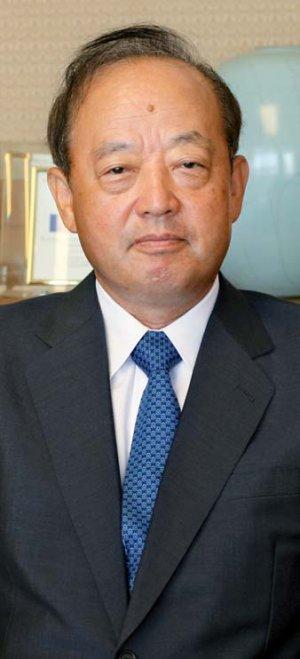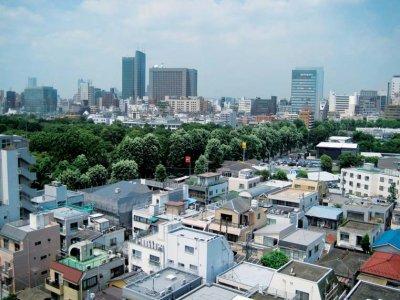Executive Interview: Japan Housing Finance Agency
Once a government organization, in April 2007 the Japan Housing Finance Agency (JHF) was established as an Incorporated Administrative Agency under then Prime Minister Koizumi’s plan to privatize government services. The organization is now the first to offer Mortgage-Backed Securities (MBS) in Japan.
J@pan Inc talks with President Seiichi Shimada about the current state of Japan’s housing and real estate markets.
 President Seiichi Shimada
President Seiichi Shimada
By Sarah Noorbakhsh
What effect has the subprime crisis had on Japan?
We haven’t felt much from the subprime crisis here, unquestionably far less than the effects felt in America and Europe. Those financial institutions which held investments like MBS and CDOs from overseas, such as several large securities firms and major banks, took somewhat of a hit. Most of the damage was to a few large mega-banks, one of which lost somewhere in the neighborhood of ¥6 billion. But considering that altogether these institutions only lost somewhere around ¥1 trillion, I think it’s safe to say we got off easy.
Also, in Japan we don’t do subprime lending, for various reasons. Although variable rate loans are currently the standard in Japan, we’re working to inform consumers about our Flat 35 loan and the security it offers in terms of interest rates.
What is Flat 35?
Flat 35 is a type of long-term fixed-rate loan that can be repaid from between 15 to 35 years. Variable interest rate residential loans with fixed terms of three, five or ten years are the standard here, with about 60 to 70% of loans less than the five-year fixed rate. Our mission is to provide a loan that is safe and easy on borrowers, so Flat 35 is fixed rate, with no penalty for early repayment.
In the four years since we started providing Flat 35 we’ve issued 190,000 loans totaling over ¥4.4 trillion. Almost all loans are for the construction of new residential properties, with only 5% of them having gone to the purchase and renovation of existing properties. In Japan, purchasing used houses just isn’t common. Last year alone, over 1 million new homes were built, yet only a half million older homes were sold.
What kind of effect does the aging population and declining birthrate have on the Japanese housing market?
There’s still no direct effect. The main purchasers of homes in Japan are people in their 30s, the children of the Baby Boomer generation, and we have thus not yet seen a significant decrease in population. Also, we’re seeing new trends in household structures that somewhat mimic the United States. While in the past you’d have several generations living under one roof, more people are choosing to live in nuclear families, increasing the need for new housing. Currently the industry has not noticed a decline, but I estimate that in about 10 years, when those who are currently in their teens and twenties become the target demographic for housing purchases, we’ll start seeing the effects of these two problems.
"Japan has one more problem: one quarter of Japan’s 53 million existing houses are not earthquake resistant"
But Japan has one more problem: one quarter of Japan’s 53 million existing houses are not earthquake resistant. Current building standards were established in 1981, and structures built before this time need to be rebuilt. Therefore, even after we start to see the effects of an aging population and declining birthrate, the demand for loans won’t change significantly because of the need to rebuild.
One more interesting trend that has emerged recently is to build a second house, often in resort-like places such as Karuizawa and Hakone. For wealthier families, even building a second residence within the same city has caught on.
What about the prices of land in Japan?
Prices have been in decline since 1991, although there was something of a recovery in 2004 focused on major cities. This was only a “mini bubble” however, and now things are going down again. But because the original bubble wasn’t that big, I don’t foresee things plummeting like they did in 1991. In the long run I think land prices are going to be pretty even from now.
Is this a good time for foreign investors?
I think so. Subprime has had very little effect on Japan directly, and even though the entire world is feeling an economic slowdown, Japanese industries are still on the better half of that. We lost 15 years between 1991 and 2004 due to the bubble, but now things are gradually aiming towards an upswing again. Profits are rising and things are starting to look healthy.
 The amount of used homes sold is less than half of the number of new houses built every year
The amount of used homes sold is less than half of the number of new houses built every year
Does JHF have competition?
More than competition from other banks, we face the challenge of teaching Japanese about healthy borrowing. We don’t have very keen competition for 15-35 year longterm fixed-rate loans because variable loans have such a hold on the market. The economy has been pretty stagnant for the past 15 years; the long-term interest rate today is 1.53%, and short-term is 0.5%. Compared to America’s 4% and 2%, respectively, and Europe’s ECB (European Central Bank) 5% and 4.25%, Japan is really low.
But although interest rates have been stable for the past several years, if they were to suddenly rise, all these borrowers with variable interest rate loans would suddenly be caught with much higher interest rates than they had bargained for, kind of like a mini subprime. One of the duties of our agency is to increase understanding of the risks of these variable interest rate loans. Those looking to build houses now need to realize that they’ll actually be paying less interest with these long-term fixed-rate loans like Flat 35. Inflation is quite possible, as things aren’t going to get any lower than it is now. The present interest rate is simply too low.
You served for many years in various positions at Mitsui & Co Ltd, both domestically and abroad. What skills did you bring from that experience to JHF?
Working at a trading company, you’re constantly conscious of the financial side, and must be up-to-date on interest and exchange rates and global economic conditions. From the moment we enter the company we’re emerged in economics. I also served for four years as president of Nihon Unisys, and learned a great deal about how the information systems that support financial institutions work. In the financial world everything is connected, and these systems are ultimately vital to the connections between institutions. I find that knowledge to be extremely valuable for where I am now. JI





